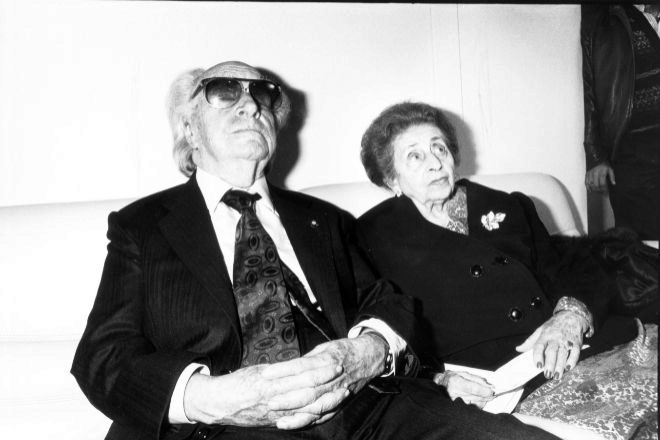It is 80 years since the creation of the best known piece of the Spanish repertoire and 20 of the death of its author, Joaquín Rodrigo.
Where, how and when was the 'Concierto de Aranjuez' born?
In September 1939, two days after the start of World War II, a blind man and his wife crossed the Spanish border from France. They were the composer Joaquín Rodrigo and the Turkish pianist Victoria Kamhi . With them they carried the manuscript in 'braille' of a score, which would be released a year later at the Palau de la Música Catalana Barcelona and that would end up giving its author immortality: the 'Concierto de Aranjuez '.
Eight decades after its composition and 20 years after the death of Joaquín Rodrigo (Sagunto, 1901- Madrid, 1999), the history of the 'Concert' is revealed as an intersection of intimate and monumental stories.
In the first place, Rodrigo began the composition of the work when the Spanish Civil War gave its last blows. At the request of guitarist Regino Sainz de la Maza, during a meal in San Sebastian, he began writing a concert for guitar and orchestra. It was "a moment of peace in those (hours) nothing quiet for Spain and threatening for Europe ."
But behind that restlessness there is another story. Seated in France since 1927, Rodrigo met Victoria in Paris and they married in 1933. They went on a wedding trip to Aranjuez , where the smells and sounds of water stimulated Joaquin's senses almost blind since he was three years old due to diphtheria.
Months later, Victoria was in Germany about to give birth, but the baby they were waiting for was born dead and the birth also left her on the verge of death. As guitarist Pepe Romero says, "he only allows himself to surface his feelings through music." Victoria was still in the hospital "and the pulse of the movement is both her own connection with life and the desire that her wife not die."
"The second movement is the reflection of his grief," Victoria herself pointed out. "I was very sorry because we were very excited and when the baby we were waiting for died it was something really sad for both of us, because he was born lifeless and I was very sick. That was the saddest thing in our life."
"Sometimes the music is very tender, overflowing with love. Other times, it shows anger. He addresses God, saying: 'Why have you taken the child?' And, at the same time, scared, he begs: ' Please do not take Victoria, "Romero says.
According to the criteria of
Know more
Comments
This news has no comments yet
Be the first in give your opinion
0 comments
